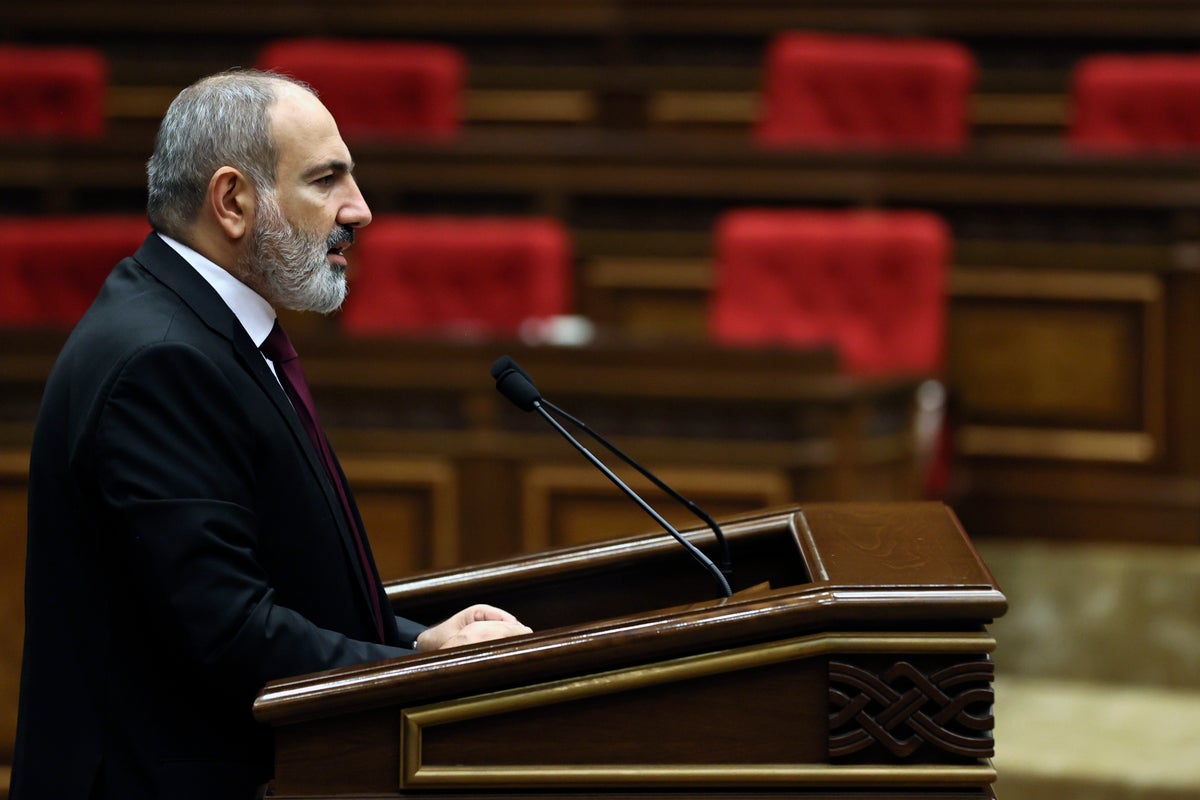
Azerbaijani forces shelled Armenia's territory on Tuesday in a large-scale attack that killed at least 49 Armenian soldiers and fueled fears of even broader hostilities.
Azerbaijan and Armenia have been locked in a decades-old conflict over Nagorno-Karabakh, which is part of Azerbaijan but has been under the control of ethnic Armenian forces backed by Armenia since a separatist war there ended in 1994. Azerbaijan reclaimed broad swaths of Nagorno-Karabakh in a six-week war in 2020 that killed more than 6,600 people and ended with a Russia-brokered peace deal.
Moscow, which deployed about 2,000 troops to the region to serve as peacekeepers under the deal, moved quickly to broker a cease-fire on Tuesday morning, but it wasn't immediately clear whether it was holding.
The hostilities erupted minutes after midnight, with Azerbaijani forces unleashing an artillery barrage and drone attacks in many sections of Armenian territory, according to the Armenian Defense Ministry.
Azerbaijan charged that its forces returned fire in response to “large-scale provocations” by the Armenian military, claiming that the Armenian troops planted mines and repeatedly fired on Azerbaijani military positions, resulting in unspecified casualties and damage to military infrastructure.
Azerbaijan’s ally Turkey also placed the blame for the violence on Armenia. Turkish Foreign Minister Mevlut Cavusoglu called for Yerevan to halt its “provocations” and Defense Minister Hulusi Akar condemned “Armenia’s aggressive attitude and provocative actions” following talks with their counterparts in Baku.
Speaking in parliament early Tuesday, Armenian Prime Minister Nikol Pashinyan said that Azerbaijani shelling has killed at least 49 Armenian soldiers.
He said the Azerbaijani action followed his recent European Union-brokered talks in Brussels with Azerbaijani President Ilham Aliyev that revealed what he described as Azerbaijan's uncompromising stand.
Pashinyan called Russian President Vladimir Putin overnight and also had phone calls with French President Emmanuel Macron, European Council President Charles Michel, Iranian President Ebrahim Raisi and U.S. Secretary of State Antony Blinken to discuss the hostilities.
The Armenian government said that the country will officially ask Russia for assistance under a friendship treaty between the countries and also appeal to the United Nations and the Collective Security Treaty Organization, a Moscow-dominated security alliance of ex-Soviet nations that includes Armenia.
Kremlin spokesman Dmitry Peskov refrained from comment on Yerevan's request, but added that Putin was “taking every effort to help de-escalate tensions.”
Russia's Foreign Ministry urged both parties “to refrain from further escalation and show restraint” and voiced hope that a cease-fire brokered by Moscow this morning will hold.







